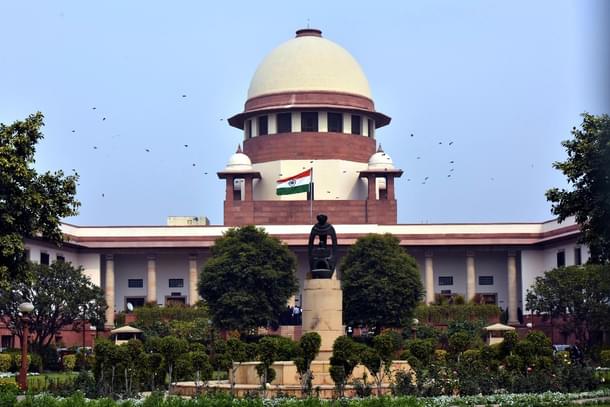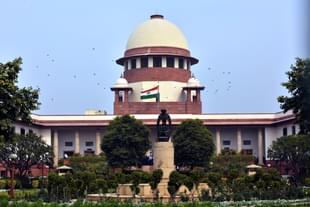News Brief
"Fraud On Constitution": Supreme Court Blasts Christian Woman For Falsely Claiming Hindu Identity To Avail SC Quota
Arjun Brij
Nov 27, 2024, 04:34 PM | Updated 04:34 PM IST
Save & read from anywhere!
Bookmark stories for easy access on any device or the Swarajya app.


The Supreme Court on Tuesday (26 November) dismissed an appeal by a woman, C Selvarani, who claimed to belong to the Hindu Scheduled Caste (SC) community to avail reservation benefits for a government job, despite the Tamil Nadu government establishing her as a practicing Christian.
A bench comprising Justices Pankaj Mithal and R Mahadevan emphasised that using conversion or reconversion solely to gain reservation benefits undermines the constitutional objective of providing affirmative action to socially and educationally backward communities.
“If the purpose of conversion is largely to derive the benefits of reservation but not with genuine belief in the other religion, the same cannot be permitted. Extending reservation benefits to such individuals with ulterior motives defeats the very ethos of the policy,” the bench observed.
Selvarani had approached the Supreme Court after the Madras High Court, in January 2023, refused to quash the appointment of another candidate selected for the job of clerk under the SC quota. She claimed to belong to the Valluvan caste, a Hindu SC community, to secure the reservation benefit.
However, Tamil Nadu's field verification revealed that Selvarani was born into a Christian family, as evidenced by her baptism records, her parents’ marriage registered under the Indian Christian Marriage Act, and regular church attendance. The State rejected her claim, finding no evidence of reconversion to Hinduism.
The apex court concurred, emphasising that conversion to Christianity severs caste identity. Furthermore, if an individual reconverts to Hinduism, substantial proof such as public declarations or ceremonies like those performed through Arya Samaj must exist. In Selvarani’s case, there was no evidence of such reconversion.
The Court stressed that India’s secular fabric allows every citizen the freedom to profess and practice their religion of choice. However, dual claims on religious identity to exploit reservation policies are untenable.
"In the present case, the appellant was a born Christian and could not be associated with any caste. Upon conversion to Christianity, one loses their caste identity. Since the factum of reconversion is disputed, there must be more than a mere claim," the Court stated.
The bench further observed that Selvarani's actions amounted to a "fraud on the Constitution," condemning her attempt to manipulate the reservation system by professing dual religious identities.
The judgment reiterated that genuine conversions stem from spiritual conviction, not material benefits. “One converts to a different religion when genuinely inspired by its principles, tenets, and spiritual thoughts. Here, the evidence clearly demonstrates that the appellant professes Christianity and actively practices the faith by attending church regularly,” the bench noted.
The Supreme Court dismissed Selvarani’s appeal, maintaining that individuals who exploit the reservation policy by falsely claiming dual religious identities undermine the integrity of affirmative action.
Arjun Brij is an Editorial Associate at Swarajya. He tweets at @arjun_brij




